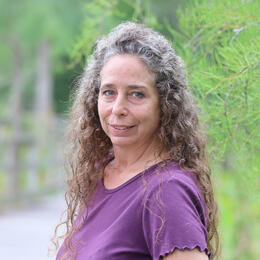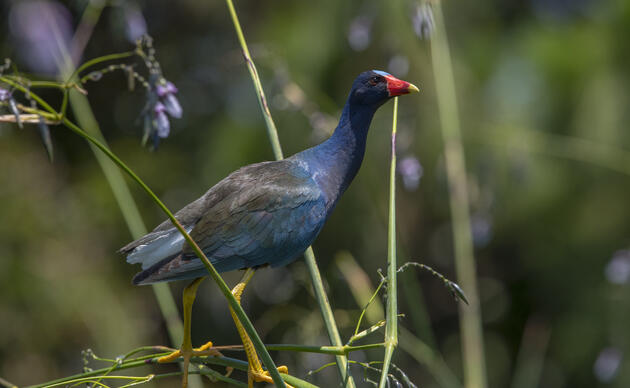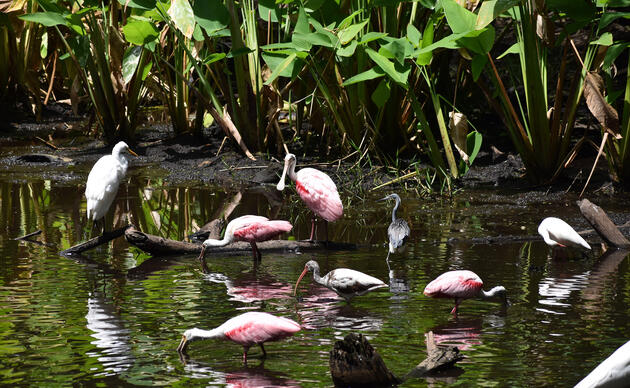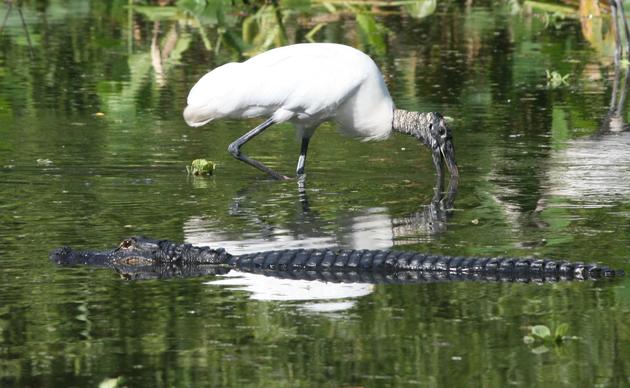Birds are constantly moving. Some birds have small home ranges while others fly incredible distances each year for survival. Audubon protects birds and the places they need through more than 20 state offices and 41 visitor centers in the U.S., while new partnerships in the Caribbean and Latin America are helping reinforce protections for the winter homes of these birds, too. As part of the Atlantic flyway, Corkscrew Swamp Sanctuary is a crucial stopover site for many species that migrate to Florida and beyond.
The Sanctuary recently provided an opportunity for staff and an advisory committee member from National Audubon Society to explore the value of hemispheric conservation in person. In October, Aurelio Ramos, Senior Vice President with the Audubon Americas program, Sean O’Connor, Chief Development Officer, and Audubon Americas Program supporters Eric and Juliana Newman met with Sanctuary Director Lisa Korte, PhD, for a guided tour and discussions.
During the tour, they explored the Blair Audubon Center and took a walk on the 2.25-mile boardwalk through pine flatwoods, wet prairie, and old-growth bald cypress forest, where upwards of 200 bird species find habitat at different times of year. Because conservation efforts are struggling to keep pace with economic growth and intensifying visitor use in Florida and across the Americas, the group discussed strategies for addressing common issues like natural resource protection, visitor management, and funding sources. A highlight of the tour was the sighting of a Ruby-throated Hummingbird: a species that travels through Florida to reach overwintering grounds in Mexico and Central America, where they face rampant habitat loss and environmental degradation.
We look forward to a deepening relationship with like-minded conservationists and finding ways to preserve and create places for birds to thrive on both sides of their migratory journeys.





